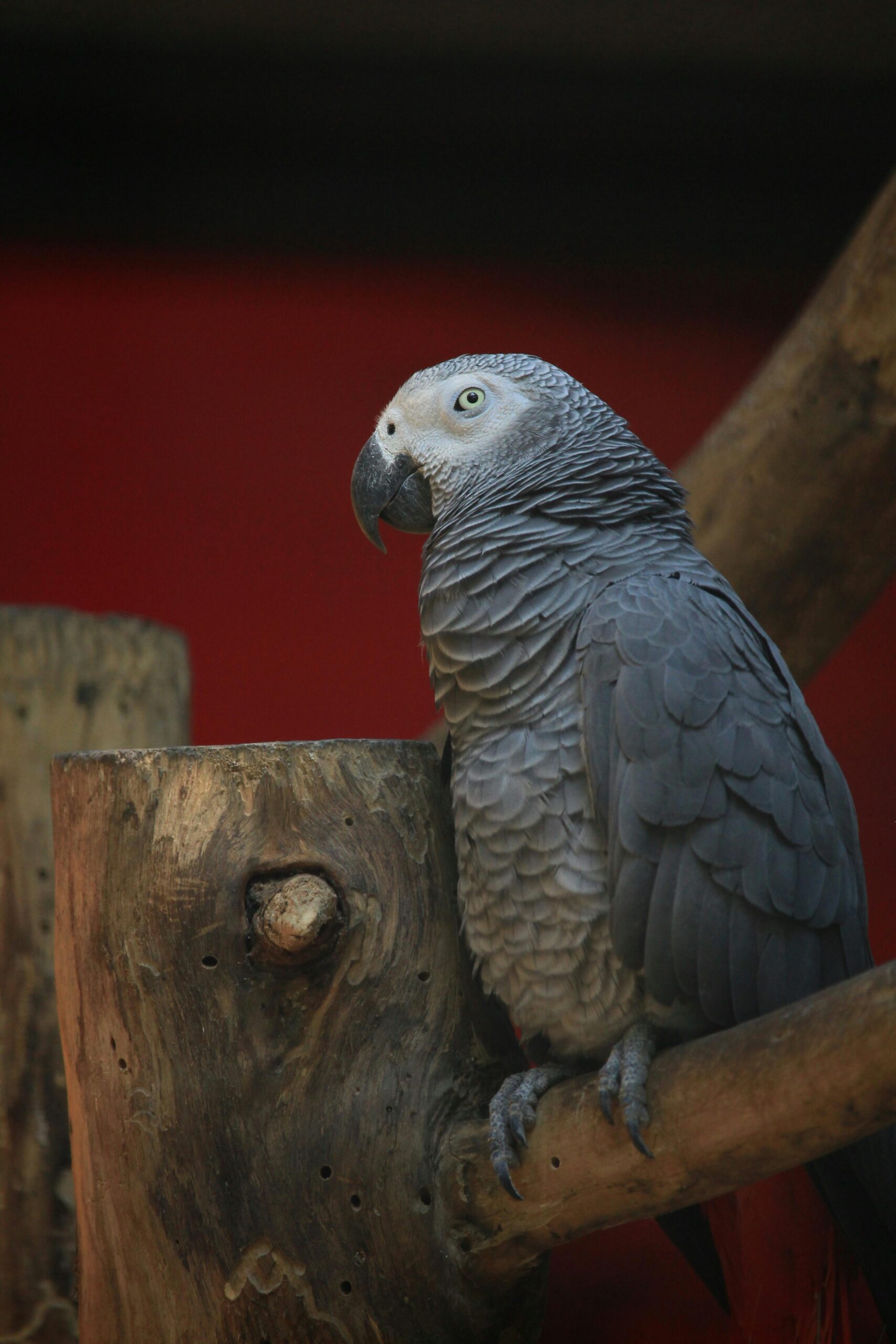Top 5 Practical Ways to Care for Your Gray African Parrot in 2025
Essential Guide to African Gray Parrot Care
The gray African parrot, often regarded as one of the most intelligent species of parrots, requires specialized care to thrive as a cherished pet. Known for their remarkable vocal abilities and engaging personalities, these birds are not just pets but also companions that necessitate an enriching environment. Proper care is paramount whether you’re a seasoned bird owner or a first-time adopter.
The following sections will delve into practical tips for caring for your gray African parrot, including their dietary needs, social interactions, and health considerations. Understanding these elements will enhance your pet’s wellbeing and strengthen the bond you share. Let’s explore how to create an ideal habitat and support their unique requirements!

Creating a Safe and Enriching Environment
Providing a suitable habitat for your African gray parrot is critical for their physical and emotional health. These birds thrive in environments that mimic their natural habitats, underscoring the importance of proper parrot enclosure setup.
Choosing the Right Cage
When selecting a cage for your gray African parrot, opt for a spacious design that allows them to move freely and safely. A cage that measures at least 24x24x36 inches is recommended, with horizontal bars to facilitate climbing. Ensure the spacing between bars is not too wide to prevent escapes and potential injuries.
For an enhanced experience, furnish their cage with assorted perches, toys, and swings. This is not only essential for their physical health but also crucial for their mental stimulation. Toys made of wood, plastic, or natural materials can encourage parrot enrichment activities and combat boredom.
Temperature and Humidity Considerations
Maintaining an appropriate temperature and humidity level in your parrot’s living area is essential. Gray African parrots flourish at temperatures ranging from 65°F to 80°F (18°C to 27°C). Avoid placing their cage in drafty areas or direct sunlight, as extremes can be harmful to their health.
A humidity level of 40-60% is ideal to help keep their feathers and skin hydrated. Consider using a humidifier in your home if necessary, and ensure the area has proper ventilation without any direct drafts.
Avian Companionship and Socialization
Gray African parrots are known to be social birds and thrive on interactive companionship. Engaging with your parrot daily not only provides emotional fulfillment but also fosters cognitive development. Daily interaction can include talking, playing, or simply spending time together.
Incorporate parrot training tips that encourage social behaviors. Teach your parrot to respond to commands and reward them for positive behavior, creating a mutual understanding that enhances your bond.
Connecting with your pet through speech can aid in parrot speech development. These parrots are excellent mimics and can learn various words and phrases, thus enriching their communication capabilities.
Understanding Diet and Nutrition for Gray African Parrots
A healthy parrot diet is pivotal for your gray African parrot’s longevity and wellbeing. As foraging birds, their diet in the wild consists mainly of seeds, fruits, and nuts, so replicating this varied dietary pattern at home can lead to a healthier lifestyle.
Best Food Options for Your African Gray Parrot
Premium pellets designed for gray African parrots should comprise a significant portion of their diet, ensuring they receive balanced nutrition. Additionally, incorporate fresh fruits and vegetables such as apples, carrots, spinach, and sweet potatoes. These foods not only provide necessary vitamins but engage your parrot’s natural curiosity and foraging instincts.
Limit treats and avoid avocado or chocolate, which are toxic to parrots. In moderation, nuts can serve as a protein-rich snack but should be given cautiously due to their high-fat content.
Hydration and Fresh Water
Freshwater should be available at all times. Change the water daily to prevent bacterial growth and ensure your parrot stays hydrated. Incorporating a water dish that your parrot can drink from comfortably is vital for continued health.
Monitoring Weight and Health Issues
Regularly check your parrot’s weight, as obesity is a common concern in pet birds. Engage with your bird vet care to assess their health and appearance. Consult with an avian veterinarian for regular check-ups to catch potential issues early on. Common health concerns include feather plucking, respiratory problems, and nutritional deficiencies.

Behavior and Training Techniques for Your Parrot
Understanding parrot behavior is key to developing a harmonious relationship with your gray African parrot. Through effective training techniques, you can enhance their social skills and adaptability in a home environment.
Recognizing Social and Playful Behavior
Observing your parrot’s behavior can provide insights into their emotional states. These birds display a range of social behaviors, from playful antics to vocal expressions. Understanding these signals can help you cater to their emotional needs effectively. For instance, a waving or bobbing head means they are happy, while feathers puffing out could indicate stress or discomfort.
Training Your Parrot with Positive Reinforcement
Utilize positive reinforcement techniques to train your parrot. When they display desired behaviors or follow commands, offer verbal praise or a small treat as encouragement. This method cultivates trust and strengthens your bond.
Focus on short training sessions, as parrots have a limited attention span. Keeping training fun and engaging ensures they remain interested and stimulated, fostering a positive learning environment.
Addressing Behavioral Issues
Behavioral issues such as biting or excessive squawking can arise if your parrot feels insecure or bored. Redirect these behaviors by providing more attention or stimulation. Additionally, understanding their triggers is essential to stopping negative behaviors effectively.
Ensuring Long-Term Health and Wellbeing
Maintaining your gray African parrot’s long lifespan and health requires ongoing attention. Following the outlined practices ensures your parrot remains healthy and happy throughout their life. Building a solid foundation begins with understanding their comprehensive care needs and promoting a supportive environment.
Regular Vet Check-ups
Routine veterinary check-ups will facilitate early detection of potential health problems. Avian veterinarians specialize in birds and can provide invaluable insights on the specific care required for your gray African parrot.
Understanding the Signs of Illness
Educate yourself on behavioral changes indicating illness. Symptoms such as lethargy, changes in appetite, or abnormal droppings warrant a consultation with your bird vet. Utilizing a keen understanding of your parrot’s normal behavior can enhance your ability to spot health issues quickly.
Implementing Daily Routines
Establishing a consistent daily routine helps your parrot feel secure and comfortable. Allocate specific times for feeding, social interaction, and play. This predictability greatly contributes to your parrot’s emotional wellbeing and reduces anxiety.
FAQs about Caring for Gray African Parrots
What is the lifespan of an African gray parrot?
Gray African parrots can live for 50 to 60 years, making them a long-term commitment for potential owners.
How can I train my parrot to talk?
Begin with simple words and phrases, using repetition and positive reinforcement to encourage learning. Regular interaction and vocalization can enhance their speech development.
Are gray African parrots good pets for apartments?
Yes, their relatively small size and ability to adapt to indoor environments make them suitable companions for apartment living, provided they receive adequate social interaction and stimulation.
What should I include in my parrot’s diet?
A balanced diet should comprise premium pellets, fresh fruits, and vegetables, with occasional nuts as a treat. Ensure clean water is available at all times.
How do I know if my parrot is healthy?
A healthy parrot will have bright eyes, clear nostrils, and a healthy feather condition. Regular weight checks and consultations with an avian vet can help maintain health.
